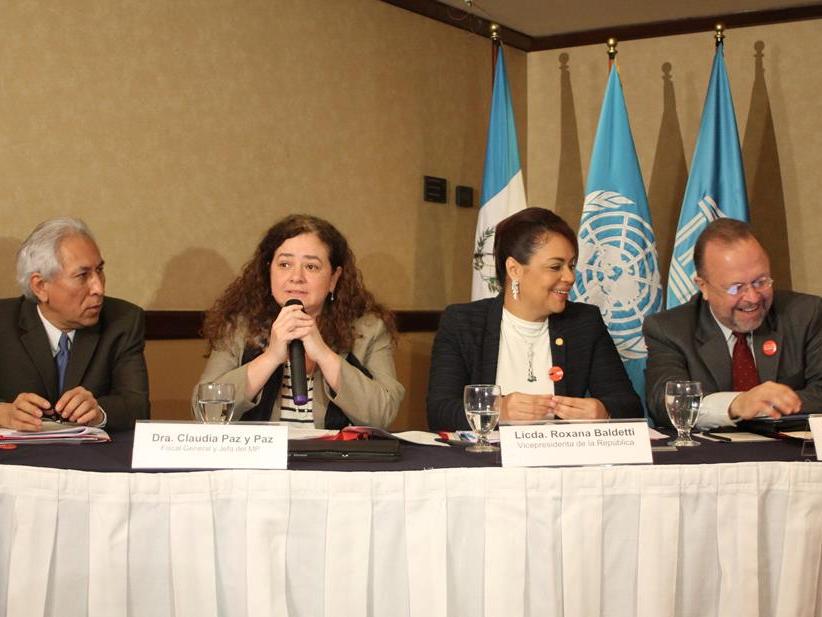On the occasion of World Press Freedom Day, IFEX-ALC calls on States to take measures against impunity, to join the necessary and constructive international observance, and to protect the work of journalists and freedom of expression advocates.
On the occasion of World Press Freedom Day, IFEX-ALC calls on States to take measures against impunity, to join the necessary and constructive international observance, and to protect the work of journalists and freedom of expression advocates.
In Latin America and the Caribbean, violations of press freedom have reached alarming numbers. From January 2010 to September 2012, 74 journalists have been murdered and authorities have issued only 8 convictions for the killings. In the same period, 431 journalists have received death threats, and at least 878 physical attacks have been perpetrated against them. Moreover, 120 journalists have been brought to court because of their publications.
To compile this variety of attacks against the press, IFEX-ALC published the first regional analysis on impunity, Faces and Traces of Freedom of Expression in Latin America and the Caribbean, with the hope that authorities will promote the prosecution of those who attack the media and undermine the right to an informed society. However, even in general terms, the progress of the investigations is often modest or nonexistent. This raises a primary concern: the legal systems of the region show a worrying inability to investigate and punish attacks on journalists.
IFEX-ALC regrets that intimidation and other attacks on journalists extend to organizations and defenders of freedom of expression, including IFEX-ALC partners. Members of the NGO Article 19 were threatened in Mexico for their efforts to defend and promote free expression in Central America. IFEX-ALC calls on the government of Mexico to meet its commitment to implement protective measures for the press as well as the immediate investigation of such threats.
A tiring reform process
In June 2011 the OAS Member States began a reform process – also called “strengthening” – of the Inter-American Human Rights System. For 21 months, press freedom organizations in the region noted with concern a number of dangerous proposals to restrict the valuable work of the Commission on Human Rights (IACHR) and especially its Special Rapporteur for Freedom of Expression, the main official body overseeing press freedom in the region.
Thanks to the great efforts of civil society and the availability of most states to hear their point of view, the inhibiting proposals were not accepted. Although the process seems to be over, the tense political environment makes it difficult to ensure the future enforcement of human rights in the region. For IFEX-ALC, it is important to strengthen the work of the Special Rapporteur for Freedom of Expression and encourage governments to view the Inter-American Commission on Human Rights as a necessary body for the consolidation of democracy in the region.
Conclusions
Given these facts, IFEX-ALC considers that freedom of expression in Latin America and the Caribbean is still subject to violations that have different levels of intensity throughout the region, even to levels as high as murder. In this context, States do not have the structural or operational capabilities to investigate and punish those responsible as they should, which generates impunity and a risky environment, not only for journalists themselves, but also for free expression advocacy organizations and citizens.
The IFEX-ALC partners believe in a better future for freedom of information, ensuring its enforcement, respect and promotion in the region, but also that it will only be achieved if journalists, civil society organizations and States work jointly to promote and defend freedom of the press as a cornerstone of democracy.
IFEX-ALC Member Organizations:
ARTICLE 19
Associação Brasileira de Jornalismo Investigativo (ABRAJI) – Brazil
World Association of Community Radio Broadcasters (AMARC) – Latin America and the Caribbean
Asociación Nacional de la Prensa (ANP) – Bolivia
Asociación por los Derechos Civiles (ADC) – Argentina
Association of Caribbean Media Workers (ACM) – Caribbean
Centro Nacional de Comunicación Social (CENCOS) – Mexico
Centro de Reportes Informativos sobre Guatemala (CERIGUA) – Guatemala
Comité por la Libre Expresión (C-Libre) – Honduras
Foro de Periodismo Argentino (FOPEA) – Argentina
Fundación Andina para la Observación y el Estudio de Medios (Fundamedios) – Ecuador
Fundación para la Libertad de Prensa (FLIP) – Colombia
Instituto Prensa y Sociedad (IPYS) – Peru
Instituto Prensa y Sociedad de Venezuela (IPYS VENEZUELA) – Venezuela
Observatorio Latinoamericano para la Libertad de Expresión (OLA) – Peru
Sindicato de Periodistas del Paraguay (SPP) – Paraguay



